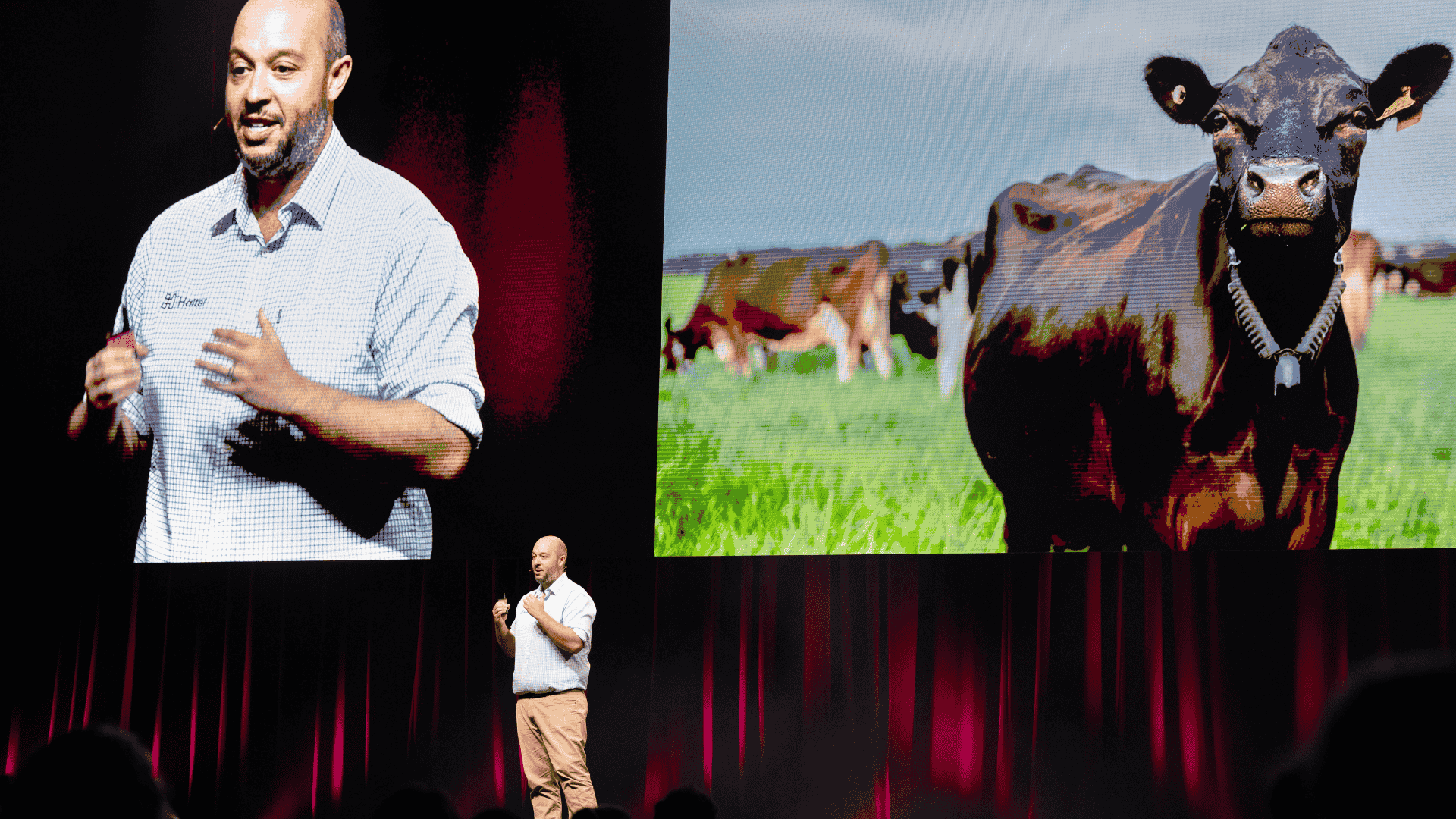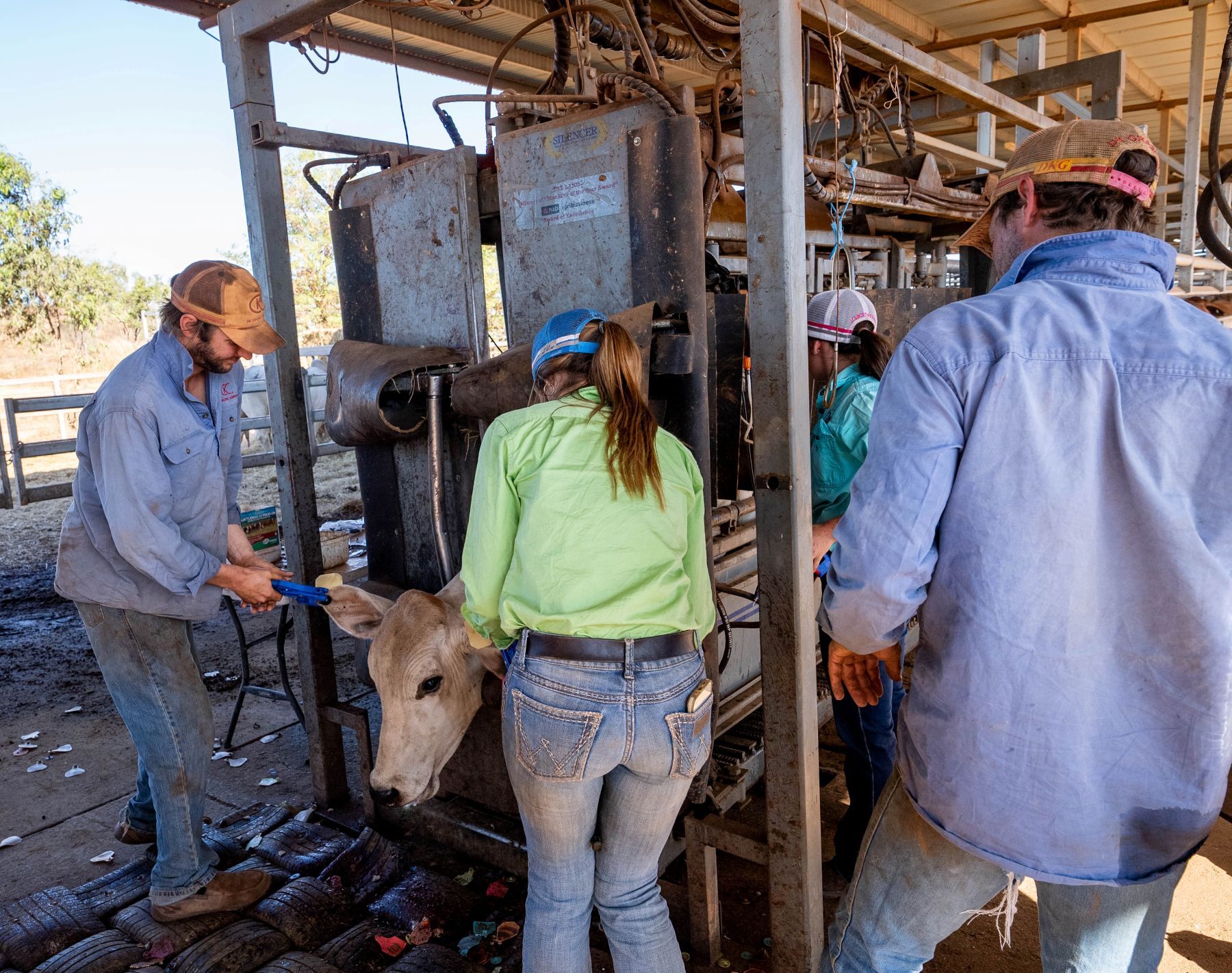Virtual fencing gets green light at ag tech event
Virtual fencing has been given the green light in Victoria, with Halter’s P5 electronic collar system on Wednesday becoming the first technology...
We’ve all heard it. We’ve all said it. “It’s fine, I’ve done it a hundred times before.”
As National Farm Safety Week continues, Farmsafe Australia is turning its attention to one of the most stubborn, and underestimated, risks in agriculture: complacency.
Farmsafe Chair Felicity Richards says complacency often doesn’t look like a risk at all because it wears the mask of routine, experience, and efficiency.
“Complacency isn’t about being careless,” Ms Richards said. “It’s about being too comfortable. Too familiar. Too confident that things will go as they always have. And that’s when the cracks start to show.”
This year’s Safer Farms Report shows the confronting truth: despite new tech, better gear and more awareness, serious injuries and near misses are not going down. In fact, severe injuries have remained static for over a decade, suggesting that experience alone is not keeping farmers safe.
And in 2024, 72 people lost their lives on Australian farms which is more than double the year before, and the highest fatality figure in more than two decades.
Many of those incidents involved common, everyday jobs; moving vehicles and equipment, operating tractors, handling stock.
“These aren’t extreme, one-in-a-million scenarios,” Ms Richards said. “They’re ordinary jobs. The kind we do all the time. And that’s exactly what makes them dangerous.”
It’s not intentional. Often, it’s the result of being tired, overwhelmed, or simply too busy. And it’s made worse by the culture of self-reliance that defines many farming communities.
“For those who’ve spent their whole lives on the land, it’s easy to feel like you’ve seen it all,” Ms Richards said. “But that’s exactly when we need to pause and ask, have I become blind to the risks in front of me?”
Complacency can also be generational. There’s a tendency to pass down “how it’s always been done” without revisiting whether it’s still the safest way. And while growing up on a farm builds instinct, it’s not a replacement for proper training.
“There’s deep wisdom in our rural communities,” Ms Richards said.
“But even wisdom needs a refresher now and then. Young workers need more than exposure, they need guidance. And older workers, especially those experiencing natural changes to memory or reaction time, need to be supported, not expected to just push through.”
The Second Chances campaign this year is encouraging farmers to “Respect the routine. Challenge the habit.”, a tagline that captures the tension between the familiarity of farm work and the need to stay alert.
Campaign tools and tips emphasise the value of fresh eyes and team check-ins, including:
• Switch it up with a buddy review - Pair up or rotate who does what. Someone else might see a hazard you’ve stopped noticing.
• Never skip the checklist – Pre-start routines, PPE, and machinery checks should happen every time, not just the first time.
• Treat routine jobs with respect – Ask: “Is anything different today?” before you start a task you’ve done a thousand times.
"Sometimes the riskiest thing we can say on a farm is ‘she’ll be right’,” Ms Richards said. “We all know that feeling when a task feels like muscle memory. But if something’s changed; the weather, the gear, the terrain, even your energy level, then it’s not the same job.”
Ms Richards also points out that complacency doesn’t always come from confidence, it can come from tiredness, time pressure, or under-prioritising safety when there’s too much going on.
“When we’re under pressure, safety can drop down the list. Not because we don’t care, but because we’re busy, tired, or distracted. That’s still complacency. And it’s still dangerous.”
Complacency also creeps in when we feel like we have no time to stop and reflect, but that’s when it’s most important.
“Complacency thrives in silence,” Ms Richards said. “When we don’t talk about near misses, we don’t learn from them. When we rush without reflecting, we don’t spot the patterns.”
The campaign calls on farm businesses and families to start small. Pick one routine task this week and ask: “Could we do this more safely?”
Ms Richards said small moments of reflection, especially shared as a team, can lead to meaningful change.
“A close call is a warning, not just a lucky escape,” Ms Richards said. “And it doesn’t have to be a trauma to be worth sharing. If it made your heart skip, it’s worth unpacking.”
At the core of this message is a culture shift, away from assumptions and toward awareness. Because respecting a task means never assuming it’s safe just because it’s familiar.
“You can’t control everything on a farm,” Ms Richards said. “But you can choose to treat every job like it matters. And that’s the difference between a routine and a risk.”
Farmsafe Australia is encouraging everyone in the sector to normalise this kind of reflection and to talk about complacency openly, without blame or embarrassment.
“This isn’t about making work harder. It’s about staying conscious and choosing safer options. That’s what culture change really means.”

Virtual fencing has been given the green light in Victoria, with Halter’s P5 electronic collar system on Wednesday becoming the first technology...
.png)
What if the real issue with “kids not stepping up” isn’t them at all?In this episode, Ben Law sits down again with high-performance advisor Chris...
.png)
As Victorians begin the long recovery following devastating bushfires which burnt more than 400,000 hectares, a pair of contract...
